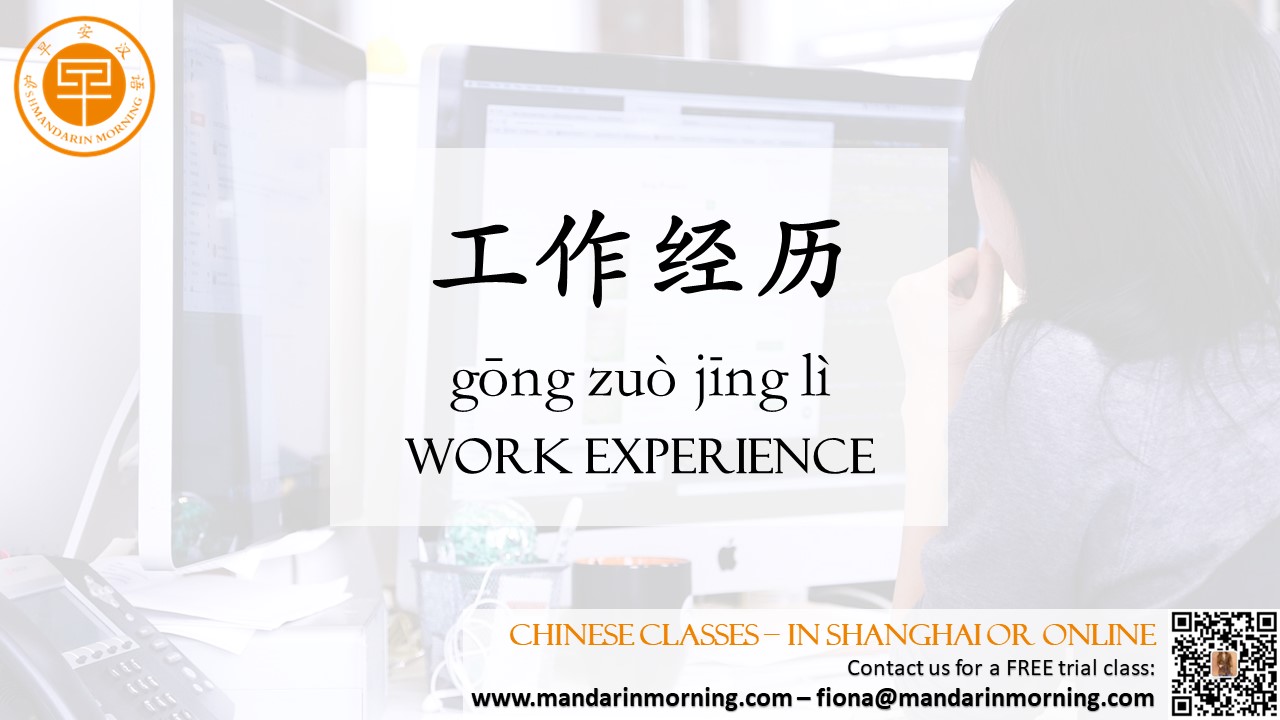| Do you have to write a resume in Chinese? In this article, we’ll guide you through the essential Chinese vocabulary to craft an impressive CV (中文简历 zhōngwén jiǎnlì). This is part two of our article.  Right after your educational background, you can list your 工作经历 (gōngzuò jīnglì), or work experience. Make sure to choose the work experience that corresponds with the position you’re applying for. It’s important to tailor this section to the specific job or industry. 公司 (gōngsī) - company 职位 (zhíwèi - position 就职时间 (jiù zhí shíjiān) - duration of employment 职责 (zhízé) - job responsibilities You can also use these keywords to highlight your work experience: 业绩 (yèjì) - noteworthy accomplishments 重要成就 (zhòngyào chéngjiù) - key achievements 技能并认证 (jìnéng bìng rènzhèng), is a section where you can incorporate your skills and expertise, showcase your language proficiency, add relevant certificates, etc. Again, make sure to tailor this section to the position you’re applying for. 语言能力 (yǔyán nénglì) - language proficiency 熟练使用… (shúliàn shǐyòng …) - to be proficient in using (+ tool) The last section of a Chinese CV includes self-evaluation part, or 自我评价 (zìwǒ píngjià). Feel free to include more personal information there — your hobbies, interests, etc. 爱好 (àihào) - hobby 兴趣 (xìngqù) - interest 个人经验 (gèrén jīngyàn) - personal experience |